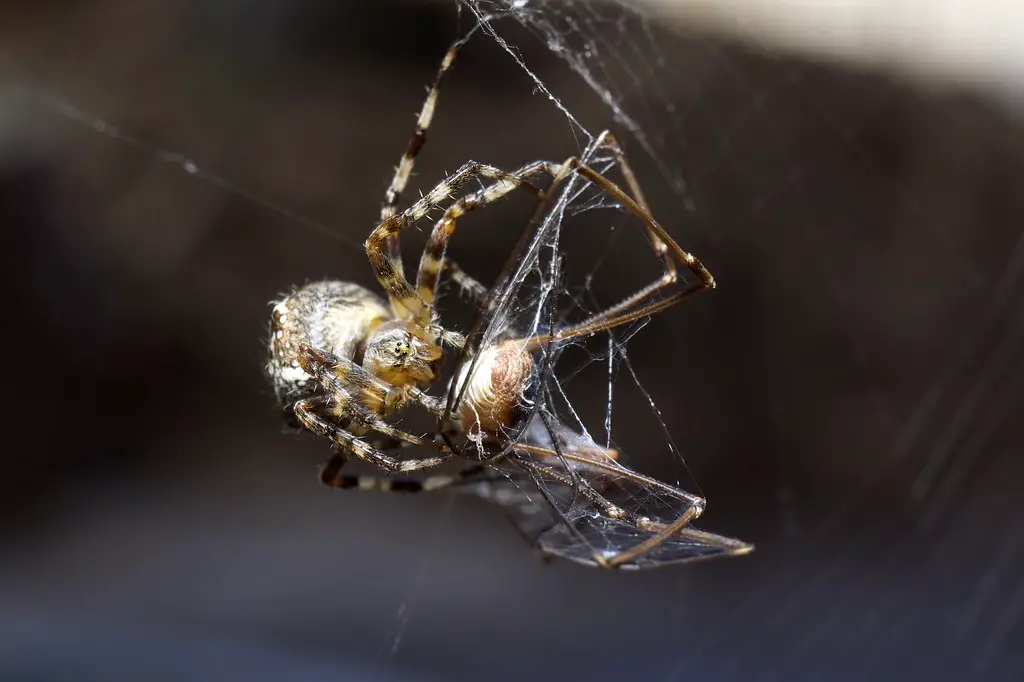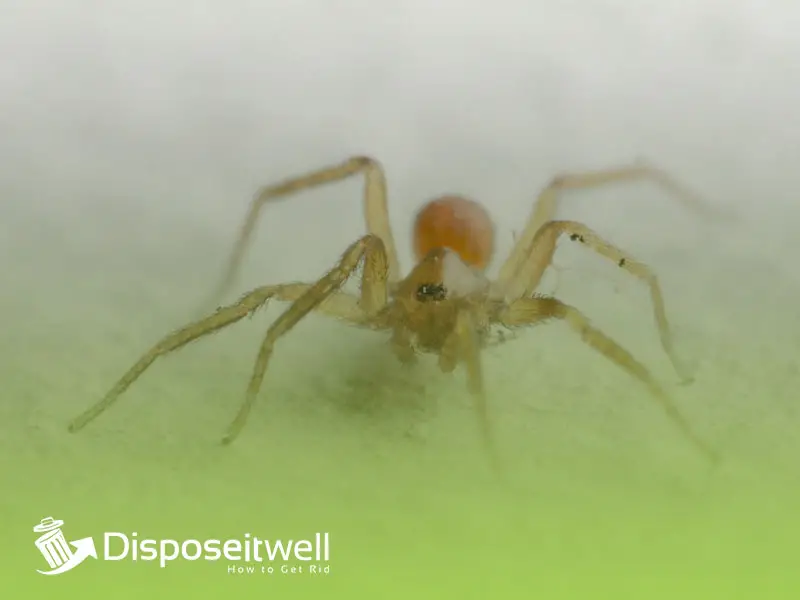Are you tired of constantly finding creepy, long-legged cellar spiders lurking in the dark corners of your home? Fear not, as we have the perfect guide to help you get rid of these unwelcome guests!
To get rid of cellar spiders, use a combination of natural repellents (like essential oils or vinegar spray) and thorough cleaning to remove webs and spiders.
In this article, we’ll discuss effective methods to eliminate cellar spiders and prevent them from making a comeback. From natural remedies to professional extermination techniques, we’ll provide a comprehensive approach that suits your needs.
Read on to discover practical tips and tricks for banishing cellar spiders once and for all.
Attributes of Cellar Spiders
Cellar spiders, also known as daddy longlegs, are a common type of spider found in many homes. They have long, thin legs and a small body, and are usually pale yellow or light brown in color. To distinguish them from other spiders, you may need to examine their palps, face structure, carapace markings, and eye groupings.
Many common spiders in this family have 8 eyes arranged into three groups: 2 in the center of the face, and a cluster of 3 on each side of the central pair. Cellar spiders are also known for their habit of hanging upside down in their webs. If you’re having trouble identifying a spider in your home, it’s always a good idea to contact a pest control professional for assistance.
Signs of an infestation
Cellar spiders are not considered a dangerous spider, but they can be a nuisance when they infest homes and buildings. Signs of a possible infestation include the presence of their webs in corners, ceilings, and other areas of the home.
These webs can accumulate dust and debris, making them unsightly. You may also notice an increase in the number of spiders you see in your home. If you suspect an infestation, contacting a pest control professional to assess the situation and recommend the best course of action is best.
How To Get Rid Of Cellar Spiders

Gather the necessary ingredients and tools.
- A vacuum cleaner with attachments
- Broom or duster
- Spider repellent spray
- Spider traps or sticky traps
Prepare the area.
- Clear any clutter or unnecessary items from the cellar, creating a more open space to work in.
- Seal any cracks or gaps in walls, windows, or doors where spiders may enter from.
Identify spider hotspots.
Cellar spiders are commonly found in dark, damp areas such as basements, cellars, and crawl spaces. Take note of areas where you have noticed their presence or where they are more likely to congregate.
Start with thorough vacuuming.
- Use the vacuum cleaner with the appropriate attachment to suck up any visible spiders, webs, and egg sacs.
- Pay close attention to corners, ceilings, and hidden crevices where cellar spiders often build their webs.
Dusting and sweeping.
- Use a broom or duster to remove any remaining cobwebs, spider debris, or dust in the cellar.
- Focus on corners, shelves, and other areas where spiders may hide or build their webs.
Spider-repellent spray.
- Purchase a spider-repellent spray from a local store or mix essential oils such as peppermint, tea tree, or citrus with water.
- Spray the solution around windows, doors, baseboards, and other areas where spiders will likely enter or crawl.
Spider traps or sticky traps
- Place spider or sticky traps where cellar spiders are commonly found.
- These traps are designed to attract and catch spiders, helping to reduce their population.
Maintaining a Spider-Free Environment
In addition to the eradication mentioned above techniques, it is afterward necessary to maintain a clean environment as prevention is better than cure.
- Regular cleaning: Keep your home clean and clutter-free to reduce hiding spots for spiders.
- Seal entry points: Seal any cracks or gaps in your home’s foundation, walls, and windows to prevent spiders from entering.
- Control humidity: Use a dehumidifier in damp areas like basements and crawl spaces to make the environment less hospitable for spiders.
- Cultivate natural repellent plants: Herbs like lavender, mint, or eucalyptus around your home can help repel spiders.
- Regular inspections: Regularly inspect your home for signs of spider activity and address any issues promptly.
FAQs
Are Cellar Spiders Poisonous?
No, cellar spiders are not poisonous. Their bite is harmless to humans. While cellar spider bites can cause minor irritation or itchiness, they do not pose any serious health risks.
Why do I have so many cellar spiders?
Cellar Spiders are attracted to dark, damp environments and other insects. To reduce their numbers, you can reduce humidity, seal up cracks and gaps, and reduce the number of other insects in your home.
Should I let cellar spiders live?
Cellar spiders are generally harmless and can be beneficial in controlling other insect populations in your home. If you don’t mind having them around, it’s perfectly fine to let them live. However, if you want to reduce their numbers, you can take steps to make your home less attractive to them, such as reducing humidity and sealing up cracks and gaps. If you do need to remove them, it’s best to use a vacuum or broom to gently sweep them up and release them outside.
What happens if a cellar spider bites you?
Cellar spiders are not dangerous to humans, and their bites are usually not harmful. Although they may bite if they feel threatened, their mouths are too weak to break through human skin and inject venom. If a bite does occur, you may experience some mild pain, redness, and swelling at the site of the bite, but these symptoms should go away on their own within a few hours. Severe reactions are extremely rare and are not typically associated with cellar spider bites.
Conclusion
Getting rid of cellar spiders can be a daunting task, but it is important to take action to prevent infestations. By following the preventative measures outlined in this article, and using natural or chemical remedies as needed, you can eliminate these pests from your home.
My name is Ella Vicedomine and I’m the founder of this blog. The aim is to start this informational blog to guide people on how to dispose of waste things around in the house but in the right way.

